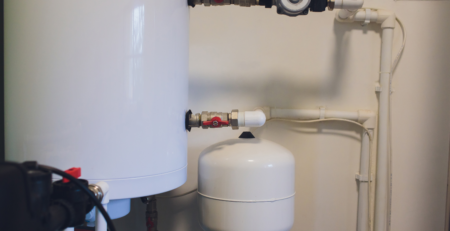Smart Homes, Smart Heaters: Integrating Electric Water Heaters with Home Automation
Integrating Electric Water Heaters with Home Automation In the era of smart homes, where connectivity and automation rule, electric water heaters are no exception to the wave of innovation. Integrating electric water heaters with home automation systems brings a new level of convenience, energy efficiency, and control to homeowners. In this guide, we explore the benefits and possibilities of incorporating electric water heaters into smart home ecosystems, creating a seamless and intelligent hot water solution.
**1. Remote Temperature Control
One of the key advantages of integrating electric water heaters with home automation is the ability to control the temperature remotely. Smart thermostats connected to your water heater allow you to adjust temperature settings using a mobile app. Whether you’re on vacation, at work, or in another room, you have the power to set the ideal water temperature at your fingertips.
2. Energy Consumption Monitoring
Home automation systems provide real-time energy consumption data for connected devices, including electric water heaters. By integrating your water heater into the smart home network, you gain insights into its energy usage patterns. This information empowers you to make informed decisions on optimizing energy consumption, leading to potential cost savings and environmental benefits.
3. Scheduled Heating Cycles
Home automation allows you to schedule heating cycles for your electric water heater. Set predefined times for heating based on your daily routines and hot water needs. This not only ensures that you have hot water when you need it but also allows you to take advantage of off-peak electricity rates, contributing to energy efficiency and potential savings.
4. Integration with Voice Assistants
Voice-controlled smart home devices have become increasingly popular, and electric water heaters can now be integrated into this ecosystem. Connecting your water heater to voice assistants like Amazon Alexa or Google Assistant enables you to control it using simple voice commands. You can adjust temperature settings, check energy usage, or even turn off the heater without lifting a finger.
5. Adaptive Learning and Optimization
Some advanced home automation systems feature adaptive learning capabilities. These systems analyze your hot water usage patterns and adapt the water heater’s settings for optimal efficiency. Over time, the system learns when and how much hot water you typically use, adjusting heating cycles to match your habits and minimizing unnecessary energy consumption.
6. Alerts and Notifications
Stay informed about your water heater’s performance through alerts and notifications sent to your smart devices. Receive notifications about maintenance reminders, potential issues, or when the water heater reaches a specific temperature. Timely alerts empower you to address any concerns promptly, ensuring the continued efficiency and longevity of your electric water heater.
7. Integration with Solar Power Systems
For homeowners with solar power systems, integrating electric water heaters into the smart home ecosystem opens the door to seamless coordination. Smart controllers can optimize the water heating process by aligning it with solar power availability. This integration maximizes the use of clean energy, reducing reliance on the grid and contributing to a more sustainable home.
8. Geo-Fencing for Energy Efficiency
Geo-fencing technology allows your smart home system to detect when you’re approaching or leaving your home. By integrating electric water heaters with geo-fencing, the system can adjust heating cycles based on your proximity. For example, it can start heating water as you head home, ensuring hot water is ready upon your arrival while minimizing energy consumption when you’re away.
9. Multi-Appliance Coordination
Home automation systems excel in coordinating multiple devices for seamless operation. Integrating your electric water heater with other smart appliances, such as washing machines or dishwashers, allows for coordinated scheduling. This ensures that your water heater works efficiently in tandem with other devices, optimizing energy usage across your home.
10. Security and Safety Features
Smart home systems prioritize security and safety. Integrating electric water heaters into the ecosystem enables features like water leak detection and automatic shut-off in case of a malfunction. These safety measures provide peace of mind, protecting your home from potential water damage and ensuring the secure operation of your water heater.
Conclusion
Integrating electric water heaters with home automation transforms hot water management into a smart and intuitive experience. From remote temperature control and energy monitoring to voice commands and adaptive learning, the possibilities are vast. As smart homes become more prevalent, the seamless integration of electric water heaters contributes not only to convenience but also to energy efficiency and sustainability.
Get Access Now
Curious about integrating your electric water heater into a smart home ecosystem? Visit for insights, comparisons, and expert recommendations on smart water heating solutions that seamlessly integrate with your home automation system. Experience the future of hot water management with smart, efficient, and connected solutions.





Leave a Reply